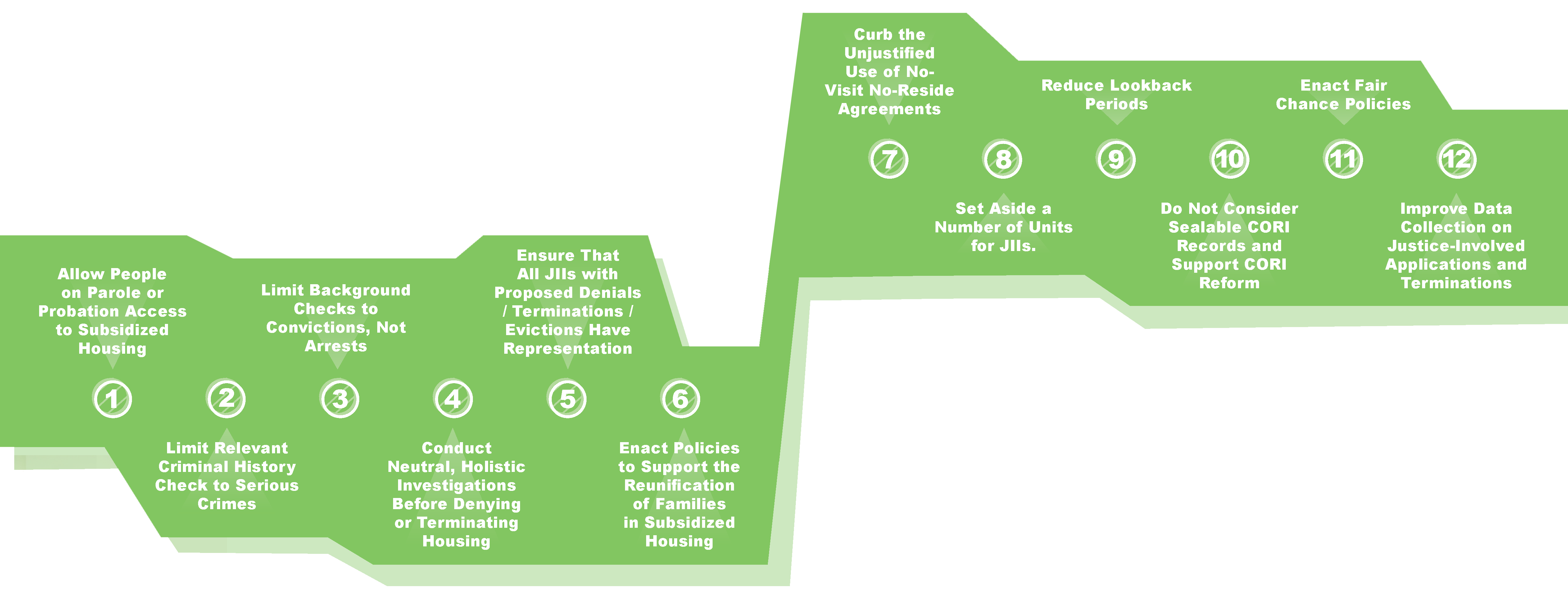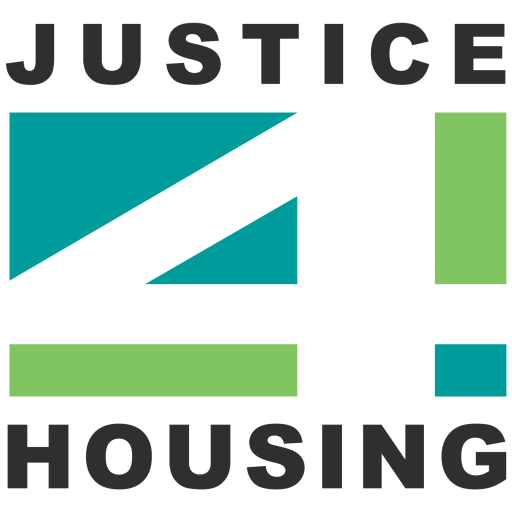The Far From Home Report
The Problem
Existing PHA policies and regulations unduly limit access to housing assistance among JIIs in Massachusetts. These policies have a disparate impact on people of color who, despite making up only 17% of the state population, represent 50% of the incarcerated population. PHA policies restricting housing access to JIIs are harmful, discriminatory, and based on an outdated view of the criminal legal system. They affect not only JIIs, but their families and children: more than 5 million children under the age of 18 reportedly have had a parent in prison or jail nationwide, including 38,000 in Massachusetts alone.
The Landscape
In June 2021, the U.S. Department of Housing and Urban Development (HUD) Secretary Marcia Fudge wrote a letter to all Public Housing Authorities (PHAs) outlining the Biden Administration’s mission to meet the housing needs of Justice-Involved Individuals (JIIs) and to “reduce barriers to housing among people with criminal records.” In this letter, Secretary Fudge wrote that, “HUD is committed to taking a comprehensive approach to addressing the housing needs of [JIIs], and by doing so, increasing public safety within our communities.”
The Solution
To accomplish the goals of the Far From Home Report, Justice 4 Housing (J4H) and the Tenant Advocacy Project (TAP) propose 12 recommendations for PHAs, local, state, and federal officials. J4H is actively working with PHAs and legislators to accomplish these recommendations.

We would like to thank Boston Housing Authority for responding to this report and starting the work to update their policies.
Read the Full Report
This report represents a partnership between Justice 4 Housing (J4H) and the Tenant Advocacy Project (TAP). Beginning in March 2021, these organizations conducted focus groups and interviews, which included the voices of Justice-Involved Individuals (JIIs) and their families. These individuals bravely shared lived experiences, and this report incorporates their recommendations. We’d like to thank all those who participated in this project.
